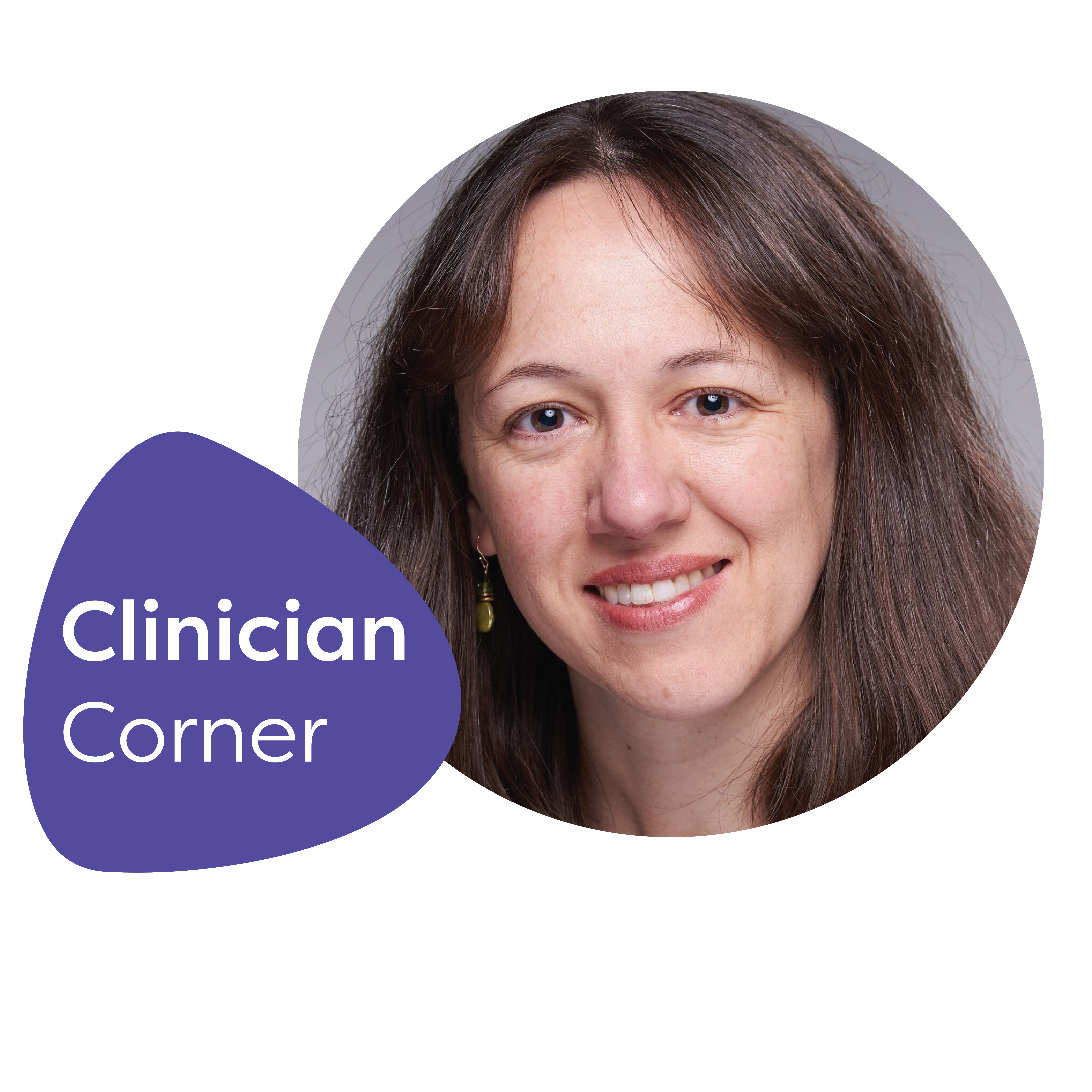Iris clinicians are at the heart of what makes our organization such a special place to work. That’s why we’re turning the spotlight on the amazing work they’re doing every day. This week we’re sitting down to talk with Dr. Isabel Norian.
Q: How did you find Iris and decide you wanted to be an Iris provider?
A: At the time, I was working in outpatient psychiatry at a community mental health center. It was a very fulfilling job, but I had a growing family with four kids, a husband, and pets. I was dissatisfied with the back and forth between the clinic and the really late nights. There were times I felt my work-life balance was out of kilter. That’s when I decided I wanted to look into telepsychiatry.
I started researching different telepsychiatry companies and was quickly impressed with Iris. I had other leads, but I found Iris to be the most responsive, welcoming, and clear in its mission. As soon as I had my first meet and greet, I felt like I belonged. I wouldn’t dream of working with any other company than Iris.
Q: What does a typical day as an Iris Telehealth provider look like for you?
A: I work at a community mental health center with patients affected by intellectual and developmental disabilities and patients on the autism spectrum. My typical day includes protected time for administrative work, seeing patients, and collaboration with the clinical staff. I often see them for consultations, and they call me if they have a question or a complex issue.
I’m also a big fan of our protected time for staff meetings. While the meetings don’t happen often, they’re a huge part of my job satisfaction. We talk about cases, bounce things off each other, and connect. It’s really therapeutic. Even though I’m not on-site, it gives me a real sense of community and that I’m a part of the clinical team. Our clinic works really well with Iris, so that’s a great feeling. I really lucked out in a lot of ways.
Q: What do you love about being a telepsychiatry provider?
A: Everything. I feel like I got my personal and family life back. My family and I love that I’m not commuting. Without all the transitions, I can end work one moment and be out the door to pick up my kids the next. Transitions can be quicker, and for a working mom, that’s priceless.
By working in my home, I can look at the screen and be present for the moments when my patients need me. I’m able to tune out the rest of the world, and that’s serene. It’s almost meditative at times, and it really helps me focus.
I also feel less tethered to a system I am frustrated with, which is my experience in previous jobs. Now, I’m partnered with a company that I chose and who chose me. I pursued them voluntarily and intentionally because they presented synchronous values.
Then, I was matched with a clinic that I feel very fulfilled by and that is very receptive to my needs and aspirations. It is a great balance. I feel more in control than I have in any other work situation. I think that’s empowering.
Q: How do you foster connection with patients virtually?
A: Creating connections has come naturally. I act as if I’m in the room with the patient, which informs how I ask questions, make eye contact, present myself physically, and relate to them through the screen. My job is to make patients feel comfortable and with a little bit of practice, you quickly forget the screen is there.
However, when my patients seem unsure, I try to provide education and reassurance. I also remind families that they have options. Where I work, we have one or two on-site providers at any given time. I let patients know that if telepsychiatry isn’t something they’re ready for or if it isn’t something that’s a good fit, there are other ways they can be seen.
I’ve found that if I’m providing education, reassurance, and reminding people of their options, it’s enough to dissolve the uncertainty. When people feel they have choices, they typically navigate towards something that works.
Sometimes I’ll check in at the end and ask, “How is this for you?” I’ll ask them, “What might I do differently?” “I welcome you to always tell me what I can do differently to help make this work better.”
Q: As a healthcare professional, how do you manage work-life balance?
A: Boundaries are important when you work from home. I’ve learned that I have to close the door, even when I’m home alone, to provide a sense that I’m at the office. When the workday is done, I close the door and say, “Now the office is closed.” I even have a little sign on my door that says, “out of office” and “in a meeting.”
It’s also important to take advantage of the flexibility that telehealth provides. I would recommend using that flexibility to build in movement breaks throughout the day and stretch. Along with this, I’d say do something different or something that you enjoy. For me, it’s dance. When I’m not dancing, I’m not taking care of myself.
I’ve also found it’s helpful to spend time with my family without devices. Since devices have become such a significant part of my work, I’ve found that it’s imperative not to be staring at a screen when I’m not working.
Q: What are your biggest learnings from your time at Iris?
A: I’ve learned that it’s not only okay but also good and healthy to delegate. There’s an impulse to fix things when working in broken systems, and I’m a fixer. When systems weren’t working, I tried to fix things independently. Whether it was the computer, EHR, staff support, or the lack of resources for people with mental illness — I would work harder, not smarter, to compensate for breaks in the system. That’s why I was relieved when I found Iris. Iris is so well-resourced and well-prepared to address all the hiccups and challenges that come with the daily work in mental health.
I have many experts to lean on, whether it’s IT, HR, or my clinic liaison. This support gives me the freedom to focus on patient care. I have the structure to succeed, and I’m learning to let experienced, talented, dedicated people help me be more effective.
Q: Why do you think telepsychiatry is important to the future of mental healthcare?
A: I think access to care is one of the biggest mental health crises that exists. It’s not that there aren’t talented providers or a lack of students ready to become psychiatrists — it’s that there’s a disconnect between resources and people who need those resources.
Telepsychiatry provides access to care that is unparalleled. As a telepsychiatrist, you get to see people from their home, group home, or foster care system. So for me, telepsychiatry is the connection, and it is the future of mental healthcare.
At Iris, our providers help create a better world through healthy minds. Thank you, Dr. Norian for helping us further our mission through your incredible work. If you’d like to learn more about working for Iris Telehealth, contact us today.



